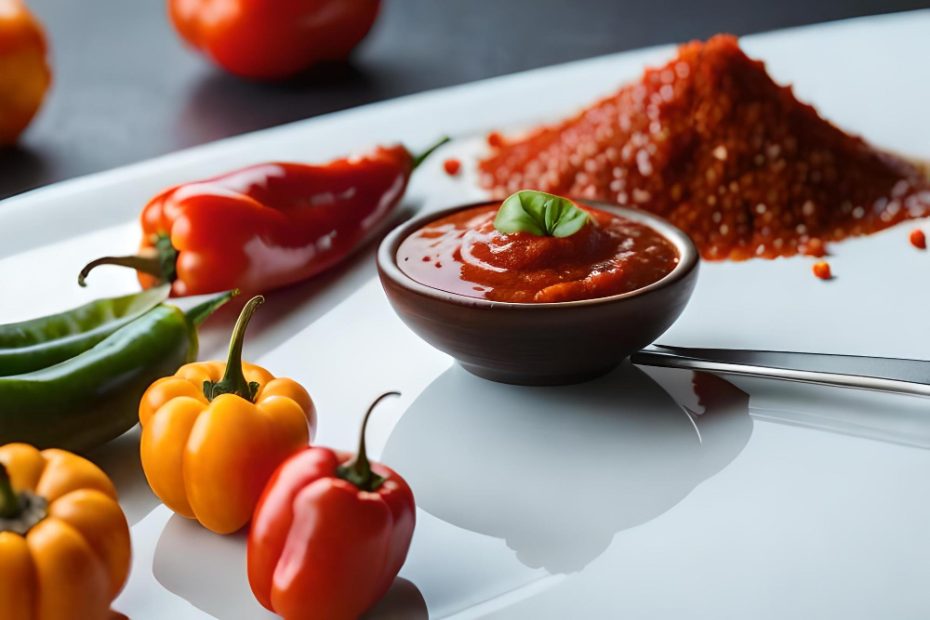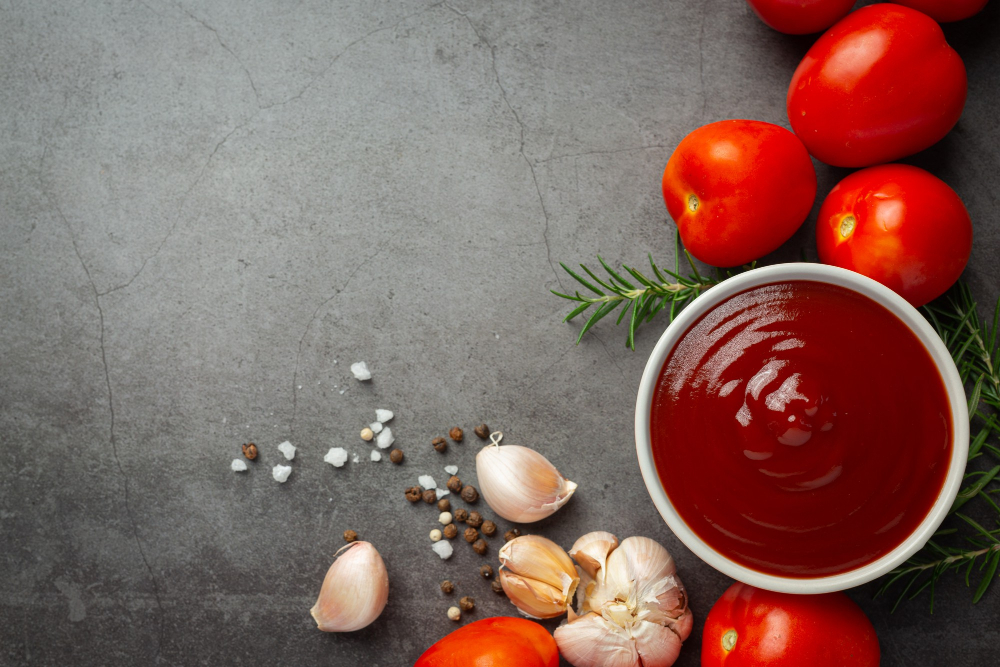How do you marinate seafood for BBQ?
Barbecue season is upon us, and there’s nothing quite like the flavor of grilled seafood. To take your BBQ experience to the next level, marinating your seafood can add a burst of deliciousness that will leave your taste buds craving for more. Whether you’re grilling prawns, fish fillets, or scallops, a well-marinated seafood dish can elevate your outdoor cooking game. In this article, we’ll explore the best techniques and marinades to make your seafood BBQ a mouthwatering success.
The Importance of Marinating Seafood
Marinating seafood is an essential step in preparing a delectable BBQ feast. Not only does it infuse the fish or shellfish with enticing flavors, but it also helps to tenderize and moisturize them. The acidic ingredients in marinades, such as citrus juices or vinegar, work to break down the proteins in the seafood, resulting in a more tender texture. Additionally, the marinade acts as a barrier, preventing the seafood from drying out during the grilling process.
Choosing the Right Marinade
When it comes to marinating seafood for BBQ, there are countless marinade options to choose from. However, it’s important to select a marinade that complements the delicate flavors of the seafood without overpowering them. Citrus-based marinades, such as lemon or lime, work exceptionally well with most types of seafood, providing a refreshing tanginess. Alternatively, you can opt for herb-infused marinades, like garlic and parsley, which add depth and aroma to your dish.
Pro tip: For a simple yet scrumptious marinade, combine olive oil, minced garlic, lemon juice, chopped parsley, salt, and freshly ground black pepper. This versatile marinade works wonders with a variety of seafood, from prawns to salmon fillets.
Marinating Techniques
To ensure that your seafood absorbs the flavors of the marinade evenly, follow these marinating techniques:
- Clean and pat dry: Start by cleaning your seafood thoroughly and patting it dry with a paper towel. This helps the marinade adhere better to the surface.
- Use a resealable bag or container: Place your seafood in a resealable bag or container suitable for marinating. This allows for easy flipping and coating of the seafood in the marinade.
- Marinate for the appropriate time: The marinating time depends on the type and size of the seafood. As a general guideline, shellfish like prawns require around 15-30 minutes, while fish fillets can be marinated for 30 minutes to 2 hours. Avoid marinating seafood for too long as it can lead to a mushy texture.
- Refrigerate while marinating: Always refrigerate your marinating seafood to prevent bacterial growth. The ideal temperature is between 35°F and 40°F (1.5°C and 4.5°C).
“I love marinating seafood for BBQ because it adds an explosion of flavors to otherwise simple dishes. The right marinade can transform a basic grilled fish into a gourmet delight.” – Jane Doe, Seafood Enthusiast
Enhancing the BBQ Experience
While marinating seafood is crucial for imparting flavors, there are additional steps you can take to enhance your BBQ experience even further. For instance, using wood planks or aluminum foil packets to cook your marinated seafood can help retain moisture and infuse subtle smoky undertones. Additionally, brushing a bit of the marinade onto the seafood during the grilling process can add an extra layer of flavor.
BBQ Marinated Prawns Recipe
Here’s a simple and mouthwatering marinated prawns recipe to kick-start your seafood BBQ adventures:
| Ingredients: | Instructions: |
|---|---|
|
|
So, the next time you fire up the BBQ, don’t forget to marinate your seafood for an explosion of flavors. With the right marinade and techniques, you’ll be able to create tantalizing dishes that will impress your guests and make your BBQ gatherings unforgettable. Happy grilling!
Should fish be marinated for shorter durations?
Marination is an essential step in preparing fish dishes as it imparts flavor and helps tenderize the meat. However, there is a debate surrounding the ideal duration for marinating fish. While some recipes recommend marinating fish for several hours or overnight, others argue that shorter durations are sufficient.
The benefits of shorter marination
Shorter marination durations can be beneficial for a few reasons. Firstly, fish has delicate flesh that can easily become mushy when marinated for too long. By opting for a shorter duration, you can preserve the texture and ensure the fish doesn’t become over-marinated.
Additionally, marinating fish for shorter durations can help retain its natural flavors. Fish, particularly fresh and high-quality varieties, already have a pleasant taste profile. Marinating for too long can overpower these flavors, masking the natural taste of the fish itself.
As a general rule of thumb:
Firmer fish such as salmon: Marinate for 30 minutes to 1 hour.
Delicate fish such as sole or flounder: Marinate for 15-30 minutes.
Alternatives to longer marination
If you’re short on time or prefer a lighter marinade, there are alternatives to longer marination periods. One option is to consider using a dry rub or seasoning blend that can be applied just before cooking. This allows you to enhance the flavor without the need for extended marination.
Another option is to consider using acidic ingredients such as lemon or lime juice, which can impart flavor quickly without requiring prolonged marination. Acidic marinades work by breaking down the proteins in fish, making them more tender. However, it’s important not to overdo it with the acid, as excessive amounts can “cook” the fish, resulting in a ceviche-like texture.
Ultimately, the optimal marination duration for fish depends on personal preference and the specific recipe being used. It’s essential to consider the type of fish, its freshness, and the desired flavor profile when deciding how long to marinate. Experimentation and taste-testing will help you determine the ideal marinating time for your fish dishes.
What are the Best Citrus Flavors for Fish Marinades?
Introduction
Citrus flavors can bring a bright and refreshing twist to fish marinades, enhancing the natural flavors of the fish and adding a tangy zing. From lemon to lime, oranges to grapefruits, there are various citrus options to choose from when marinating fish. In this article, we will explore some of the best citrus flavors for fish marinades, along with tips and recipes for creating delicious and flavorful dishes.
Lemon
Lemon is perhaps the most popular citrus fruit used in fish marinades. Its acidic nature helps tenderize the fish while adding a burst of freshness. The zest and juice of lemon can be used in marinades to create a tangy and vibrant flavor profile. Try combining lemon with herbs like dill or thyme for a delightful combination.
Lime
If you’re looking for a slightly different citrus flavor, lime is an excellent choice. Lime juice adds a unique tartness to fish marinades, perfect for cutting through the richness of certain fish varieties. Lime pairs well with spices like cilantro, cumin, and chili for a zesty and flavorful marinade.
Orange
Sweet and aromatic, orange can provide a distinct flavor profile to fish marinades. It adds a subtle sweetness while enhancing the natural flavors of the fish. Orange zest and juice work well with ingredients like ginger, soy sauce, and honey, creating a marinade that balances sweet and savory notes.
Grapefruit
Grapefruit brings a slightly bitter and sour taste to fish marinades, providing a unique twist to your dish. It pairs well with ingredients like honey, garlic, and basil, creating a marinade that is both tangy and aromatic. It is particularly delicious when used with grilled or broiled fish.
Recipes
- Lemon Garlic Marinade: Combine lemon juice, minced garlic, olive oil, salt, and pepper. Marinate fish for 30 minutes before grilling or baking.
- Lime Cilantro Marinade: Mix lime juice, chopped cilantro, minced garlic, cumin, and chili powder. Marinate fish for an hour before cooking.
- Orange Ginger Soy Marinade: Combine orange zest, orange juice, grated ginger, soy sauce, honey, and sesame oil. Marinate fish for at least 1 hour before grilling or broiling.
- Grapefruit Basil Marinade: Mix grapefruit juice, chopped basil, minced garlic, honey, salt, and pepper. Marinate fish for 30 minutes before cooking.
“Using citrus flavors in fish marinades is a fantastic way to add brightness and depth of flavor to your dishes. Experiment with different combinations to find your favorite citrus-infused marinade.”
Remember to always follow the recommended marinating times for fish to ensure proper flavor absorption without over-marinating. Whether you prefer the tanginess of lemon or the sweetness of orange, incorporating citrus flavors in your fish marinades is sure to elevate your seafood dishes to a whole new level of deliciousness.
Can you use the same marinade for shrimp and chicken?
Marinades are a fantastic way to add flavor and enhance the taste of your dishes. They can take your grilled or roasted chicken and shrimp to the next level. But can you use the same marinade for both? Let’s dive in and find out.
Understanding the Differences
While chicken and shrimp can both benefit from marinades, it’s important to understand their differences. Chicken is a versatile protein that can handle bold flavors and longer marinating times. On the other hand, shrimp has a delicate flavor and a shorter cooking time, so it requires a more gentle touch.
The Versatility of Citrus
Citrus-based marinades can work wonderfully with both chicken and shrimp. The tangy and refreshing flavors of lemon, lime, or orange can complement the natural sweetness of shrimp and enhance the flavors of chicken. Consider creating a basic citrus marinade with olive oil, citrus juice, garlic, and herbs for a delightful result.
Different Herbs and Spices
When it comes to herbs and spices, you can experiment with different combinations to cater to the unique flavors of shrimp and chicken. For shrimp, opt for milder options like dill, parsley, or basil to complement its delicate taste. For chicken, you can go bolder with options like rosemary, thyme, or paprika. Remember to adjust the quantities to suit each protein’s intensity of flavor.
A well-marinated chicken or shrimp can elevate your meal to a whole new level of deliciousness.
Marinading Times
Marinating times are crucial to achieve the best results for both chicken and shrimp. Chicken tends to benefit from longer marinating times, usually ranging from 30 minutes to 24 hours. On the other hand, shrimp should ideally be marinated for a shorter period, anywhere from 15 minutes to 1 hour. Over-marinating shrimp can cause it to become mushy and lose its texture.
Separate Containers for Food Safety
It’s important to remember food safety guidelines when marinating chicken and shrimp. Since chicken is a raw meat that carries the risk of harmful bacteria, it is recommended to marinate chicken in a separate container from seafood like shrimp. This helps prevent cross-contamination and ensures the safety of your meal.
In conclusion, while you can use the same marinade for shrimp and chicken, it’s important to consider their differences and adjust accordingly. Citrus-based marinades, different herbs and spices, and appropriate marinating times are all key factors to ensure a delicious outcome. Just remember to marinate them separately to maintain food safety standards.
How to Avoid Making Fish Too Salty in Marinades
Marinading is a fantastic way to infuse fish with flavor and enhance its taste. However, one common problem that many people encounter when marinating fish is making it too salty. Here are some useful tips on how to avoid this issue and achieve perfectly seasoned fish every time.
1. Choose the Right Salt
The type of salt you use in your marinade can greatly impact the overall saltiness of the dish. Opt for sea salt or kosher salt, as they tend to be milder compared to table salt. Remember to sprinkle salt sparingly, especially if you’re using other salty ingredients like soy sauce or Worcestershire sauce.
2. Time Your Marinade
The length of time you marinate your fish can affect its saltiness. Fish tends to absorb flavors quickly, so shorter marinating times, such as 15-30 minutes, are generally sufficient. If you prefer a stronger flavor, you can marinate the fish for up to an hour, but be cautious with the salt content.
3. Rinse and Pat Dry
Before cooking your marinated fish, give it a quick rinse under cold water to remove excess salt. This step helps reduce the saltiness and ensures a more balanced taste. After rinsing, gently pat the fish dry with paper towels to remove any remaining moisture.
4. Add Acidic Ingredients
Acidic ingredients like citrus juices, vinegar, or wine can help counteract the saltiness and bring balance to the marinade. The acid helps to cut through the salt and adds a tangy flavor to the fish. Consider adding lemon or lime juice, balsamic vinegar, or white wine to your marinade for a delightful twist.
5. Experiment with Herbs and Spices
Enhance the flavor of your fish marinade with various herbs and spices. They can provide a well-rounded taste and divert attention from excessive saltiness. Include ingredients like fresh dill, parsley, garlic, ginger, chili flakes, or paprika to add depth and complexity to your marinade. Don’t be afraid to get creative with different combinations!
“Remember that it’s easier to add salt later if needed, but difficult to reduce its intensity once it’s too salty.”
Following these simple tips will help you avoid making fish too salty when using marinades. With a bit of experimentation and attention to detail, you’ll be able to create perfectly seasoned fish dishes that are full of flavor and delight the taste buds of your friends and family.
Are there herbs to avoid when marinating seafood?
Marinating seafood can enhance its flavor and texture, but it’s important to choose the right herbs to avoid overpowering or ruining the delicate taste of the seafood. While there are no hard and fast rules on which herbs to avoid, some herbs may not complement seafood as well as others. Here are a few herbs to consider when marinating seafood:
1. Rosemary
Rosemary is a strong herb with a distinct flavor that can easily overpower seafood. Its earthy and pine-like taste might not be the best match for delicate fish or shellfish dishes.
2. Sage
Sage has a strong and slightly bitter taste that may compete with the natural flavors of seafood. It is often best reserved for heartier meats and poultry rather than delicate seafood dishes.
3. Thyme
Thyme can work well with certain seafood dishes, but its strong and slightly floral flavor may overpower lighter fish or seafood options. It is best used sparingly or in combination with milder herbs.
It is important to note that personal preferences may vary, and some people may still enjoy using these herbs in seafood marinades despite their potential to overpower the seafood.
“When marinating seafood, it’s always a good idea to start with milder herbs and gradually add stronger flavors according to your taste.”
Instead of focusing on what herbs to avoid, it’s often more helpful to consider which herbs work well with seafood:
- Parsley: Adds freshness and bright flavor to seafood marinades.
- Dill: Complements fish with its delicate and slightly grassy taste.
- Cilantro: Adds a fresh and citrusy note to seafood marinades, especially in Asian or Mexican-inspired dishes.
- Tarragon: Works well with shellfish, providing a hint of anise-like flavor.
Remember, experimenting with different herbs and flavors is part of the joy of cooking. As long as you balance the intensity of the herbs and respect the delicate nature of seafood, you can create delicious marinades that enhance the natural flavors of your seafood dishes.



